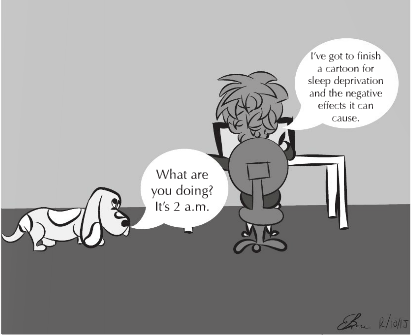Sleepless in San Francisco
Lack of sleep compromises health and well-being.
December 10, 2015
Sleep is an essential part of adolescent well-being, but many teenagers see it as an expendable activity, which can affect their moods and physical health.
“Multiple times my dad has stormed into my bedroom at 3 a.m. saying I need to go to sleep,” junior Elisa Ternynck, who says she sleeps six or fewer hours every night to do homework, said.
Teens should sleep 8 to 10 hours per night, according to pediatrician Dr. Eileen Aicardi.
“The hours of sleep a night teenagers are supposed to have was brought up during Class Meetings and we all laughed because that’s not at all what we get,” Ternynck said.
Sleep deprivation can lead to health related issues such as an increase in the chances of suffering from diabetes, depression, obesity and cancer, according to the Center for Disease Control.
“People who are sleep deprived are often times are more vulnerable to get sick because they don’t have the same immune responses and some of the other things that manage stress in your body are compromised,” Aicardi said.
Insufficient sleep causes daytime sleepiness and reduced alertness, according to the Center for Disease Control.
“I’m definitely more sensitive when I don’t sleep because you don’t have that time to let your body recharge or repower for the next day,” junior Lillian Lachman said. “When I don’t get that time it definitely affects my mood and how much energy I can have throughout the day.”
Lack of sleep can also affect mood and irritability towards family members and friends, according to Aicardi.
“When I don’t sleep, at school I can’t focus and I can’t act normally the next day,” Ternynck said. “Sometimes I will zone out in class or even fall asleep. Sometimes I can’t even talk to people because it’s that hard.”
It is better to go to sleep early and wake up early if homework must be completed rather than stay up late finishing because shallow sleep is far less restorative than the deep sleep that takes place when going to bed earlier, according to Aicardi.
Shallow sleep is a state of sleep in which it is easier to wake up, where deep sleep is a state of sleep in which the muscles relax and movement is minimized.
“A bad night for me is when I get no sleep and just stay up straight through the night,” Lachman said. “Even worse though is getting five to 10 minutes because you go to sleep and then you wake right up.”
Teenagers and children who are still growing and do not sleep sufficiently can experience stunted growth.
“The majority of hormones come out at night when sleeping, so if people are concerned with how tall they are and want to maximize their height then sleep is part of the equation,” Aicardi said.
Sleep needs to take precedence over anything else, even if that means sacrificing a homework assignment on occasion, according to Aicardi.
“Sleep is a time where you’re not supposed to be stressed about anything,” Lachman said. “It’s a time for you to relax and take a break from your day-to-day life and when you don’t get that break it can affect how much you can stand throughout the day.”










